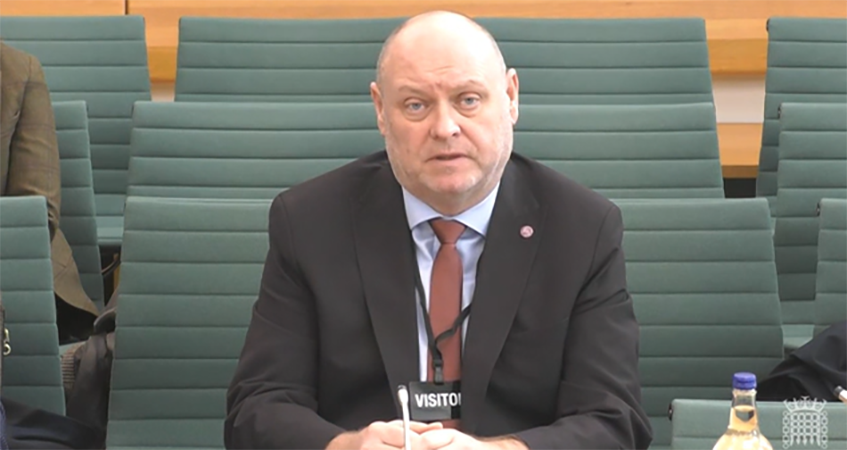FDA General Secretary tells MPs political leadership must show more consistency in enforcing standards

FDA General Secretary Dave Penman has told the House of Commons Standards Committee that compared to the environment in the wake of the MeToo movement, members have grown in confidence “to challenge inappropriate behaviour” by MPs. However, there will always be room for improvement.
Penman, alongside Prospect General Secretary Mike Clancy, was giving evidence to the Committee’s inquiry into the House of Commons standards landscape, which is examining the landscape of bodies and processes that regulate the conduct of MPs.
Discussing the importance of independence for these bodies and processes, Penman highlighted how the implementation of the Independent Complaints and Grievances Scheme (ICGS) in 2018 has taken away the decision to investigate, and the outcomes of investigations, from MPs and out of political influence, which “absolutely” improved FDA members’ confidence to report any inappropriate conduct by MPs.
Penman compared the independence of the ICGS to the Ministerial Code, which he called “completely and utterly inadequate for the purpose of regulating conduct” as all power derives from the Prime Minister, with no independence.
However, the General Secretary stressed that the changing culture in Westminster is a constant process, and improvements are required. He said: “I don’t think anyone would say it is sorted or done”.
In the written evidence to the inquiry, the FDA repeated the call for risk-based exclusion of MPs under investigation for serious offences in order to protect staff:
“We believe that formal protocols between the political parties and parliament are required to ensure that information necessary to the health and safety of employees, visitors, constituents attending surgeries and, indeed, other MPs, such as that an MP is under investigation by their party for allegations of a sexual or violent nature, is made available to relevant persons within the parliamentary structure to enable proper risk mitigations to take place.”
Penman told the Committee that the ICGS cannot drive cultural change on its own and political leadership must show “consistency, not just of message, but on actual decisions and actions” when enforcing standards in their own ranks.
The General Secretary explained that there is a “hesitancy about publicly defending” the ICGS and investigatory processes. While the confidentiality of complaints processes must be protected, a public face to a process is equally vital and would help maintain confidence and impartiality.
He argued: “Everyone would feel greater confidence if there was someone in the public realm prepared to respond when there are unfair criticisms of the process”, for example around lengthy delays.
The Guardian reported on the full day’s evidence. You can also view video clips of Penman’s evidence via X.Related News
-

Under significant pressure: Interview with Director of Public Prosecutions
Tom Nathan speaks to Crown Prosecution Service Director of Public Prosecutions Stephen Parkinson about CPS’s handling of riots, the importance of impartiality and his plan to help reduce unmanageable prosecutor caseloads.
-

Changing the culture
HM Chief Inspector Sir Martyn Oliver sat down for an ‘in conversation’ event with FDA General Secretary Dave Penman, discussing the pace of change in Ofsted, challenging perceptions and tackling the long hours culture in Education.
-

Hybrid working: Led by evidence, not headlines
Tom Nathan shares the findings and recommendations of the FDA’s recent report on ‘The future of office working in the civil service’.